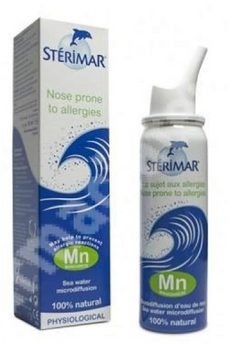Kostenlose Lieferung für alle Bestellungen über 100 €
Allergy reaction

Allergic reaction
Allergy is one of our biggest public diseases. An allergic reaction is a condition caused by hypersensitivity to substances from the external environment. In many cases, allergies are a hereditary condition.
What is allergic reaction?
An allergic reaction occurs when the body's immune system overreacts to substances that we eat, breathe in, get in the eyes, come into contact with the skin or get injected with. When we come into contact with substances we react to, this can activate the immune system, which in turn triggers the typical allergy symptoms. An allergic reaction can occur with:
Hay fever. This can be caused by fur animals, pollen, mites, molds
Food allergy
Wasp and bee stings
Injections with vaccines, medicines or X-ray contrast agents
Anaphylactic shock
The most serious form of allergic reaction is called anaphylactic shock. This usually occurs acutely within 5-30 minutes after one has been in contact with the triggering substance. Early symptoms that may occur are a feeling of warmth, itching, palpitations, pallor and cold sweats. The airways become narrower and you will therefore also experience hoarseness and difficulty breathing.
Symptoms of allergic reaction
The symptoms can be different and depend on the type of allergy. Typical symptoms of hay fever are:
Itchy, runny or stuffy nose
Itchy, watery, red or swollen eyes
Sneezing
Itching in the mouth, throat and throat
In some people, hay fever can trigger asthma when dust or pollen that has been breathed in gets into the lungs and creates a reaction. This can cause persistent coughing, wheezing and shortness of breath.
In the case of insect bites, common symptoms are:
Pain
Redness
Swelling
Itchy skin
Hives
Serious symptoms are difficulty breathing and chest pain
In very rare cases, some people may experience severe allergic reactions after vaccination. Symptoms of this are:
Itchy rashes and blisters (hives) all over the body
Breathing problems
The most dangerous reactions will occur quickly after vaccination. Therefore, you often have to wait at the vaccination site for at least 20 minutes after a vaccine.
Treatment against allergic reaction
Avoid what you are allergic to.
To alleviate the symptoms of allergies, you can use various allergy medicines, for example antihistamines. In addition, local medicines such as eye drops, inhalation preparations, cortisone ointments and nasal sprays/drops are used.
In the case of anaphylactic shock, it is important to treat quickly with adrenaline. Allergy sufferers with a high risk of anaphylactic shock should always carry adrenaline pens.
When should you contact a doctor in case of an allergic reaction?
In case of symptoms of allergy requiring investigation.
If you do not get sufficient effect from your allergy medicine(s).
If you experience a severe allergic reaction.
If you have long-term allergy symptoms.
If you have tried self-treatment against allergies and have not improved.
When wheezing or wheezing from the throat/pharynx in connection with allergies.
Sources: Great Norwegian encyclopedia, Norwegian Health Information Technology, Norwegian Asthma and Allergy Association, Helsenorge








